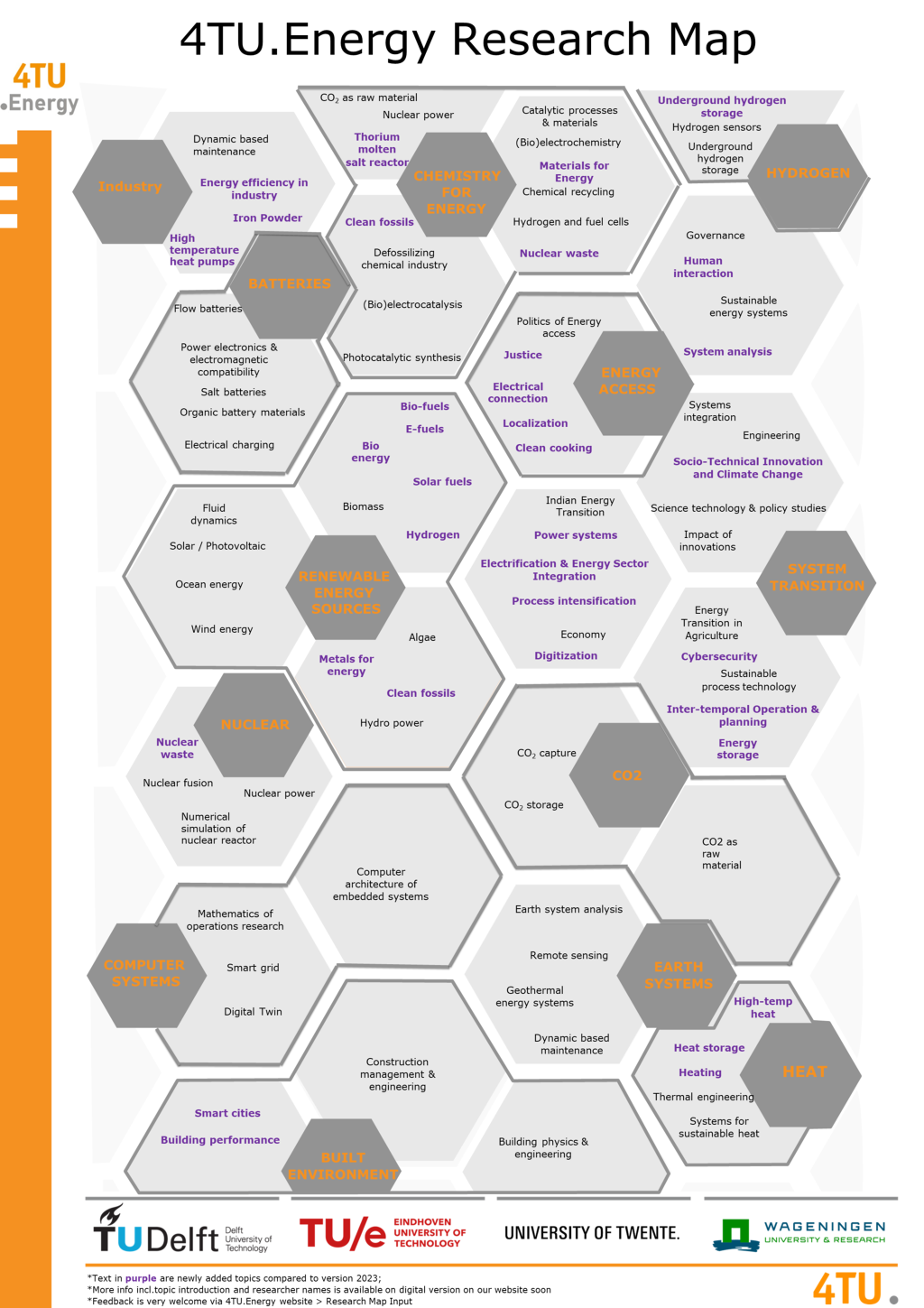Society’s transition from fossil fuels to renewable energy is central to 4TU.Energy’s mission. This transition involves a change in the way we convert, distribute, transport and consume energy. Therefore the 4TU.Energy community has a broad orientation to energy.
4TU.Energy scientists can be found in a variety of scientific disciplines focusing on fundamental research or on applications and their users. For that reason, we present a "Research Map" depicting the many disciplines, fields, and applications that together make up the 4TU.Energy community.
Mapping the variety of disciplines is ongoing work, we kindly ask you to check the info below and give your input (in case of anything needs to be changed/added) on the separate page here. Read the context for the following figure below.

4TU.Energy researchers explore new ways of reducing CO2 and improve renewable energy sources to convert green energy. Research in these areas are either fundamental, for example in chemical engineering and physics or applied, for example in mechanical engineering and geo-engineering.
When it comes to energy distribution, researchers are developing digital tools to help coordinate and predict energy use in a distributed and diverse energy system. It is here that electrical engineering, mathematics and computer science play a significant role in improving the power grid and where new applications are developed.
Energy consumption is also a focal point of attention of 4TU.Energy researchers. Shifts in consumer behaviour, policy changes and technological innovation play a major role in the future of energy consumption and help shape energy conversion and distribution. The energy transition is expected to have significant consequences for a number of sectors in society, such as industry, mobility and transportation and the built environment. As these are just a few of the application areas where 4TU.Energy has expertise, this clearly demonstrates the breadth of the research (and education) in the field of Energy.